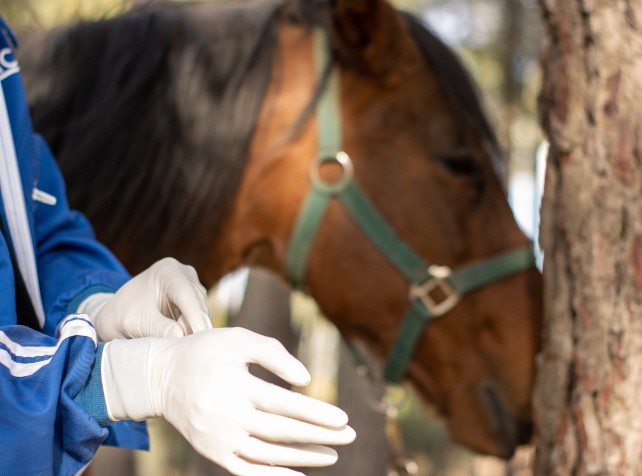An unvaccinated horse has died of the bat-borne Hendra virus in NSW, sparking inquiries into whether it passed to a human.
The Hendra virus is often fatal in the rare cases it is detected in humans, usually after they had significant contact with horse body fluids.
Subscribe for FREE to the HealthTimes magazine
The latest detection was confirmed late on Tuesday after testing of a sample of a 24-year-old unvaccinated horse from a property near Newcastle.
A private vet had attended to the affected horse, the NSW Department of Primary Industries (DPI) said on Wednesday.
"The horse was depressed, unco-ordinated, had a nasal discharge and high temperatures, so the attending vet collected samples for testing and notified the DPI Emergency Animal Disease Hotline," NSW DPI chief veterinary officer Jo Coombe said.
FEATURED JOBS
Programmed Health Professionals
Programmed Health Professionals
Programmed Health Professionals
Authorities were working with the private vet to undertake a risk assessment on the property.
No other animals are showing any signs of ill health, Dr Coombe said.
State health officials are also undertaking risk assessments of any people who have had contact with the infected horse.
Hendra virus infection is notifiable in NSW under state biosecurity laws and the movement of animals and people on and off the property will be controlled for at least 21 days.
The case is the first confirmed detection of Hendra virus in NSW since October 2021.
All four human deaths in Australia from Hendra virus were in Queensland, where it was first detected in 1994.
The virus is thought to pass from bat to horse through food recently contaminated by flying fox urine, saliva or birth products.
Dr Coombe urged horse owners to remain vigilant as the signs of infection are very non-specific early on.
"Vaccination of horses is the most effective way to help manage Hendra virus," she said.
"Owners should also keep their horses away from flowering and fruiting trees that are attractive to bats."
Anyone who notices a horse unwell should isolate the animal from people and other animals, and immediately ring a private veterinarian.












